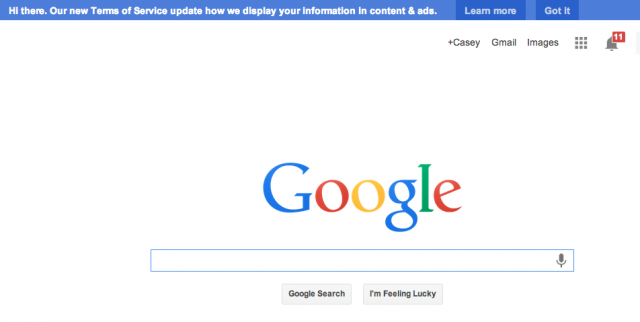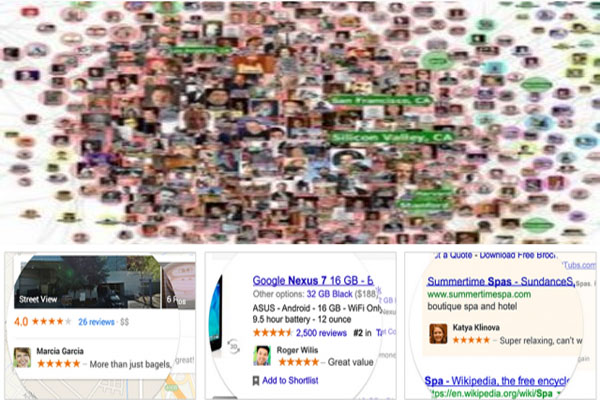Your name is ____, and you endorse this Google message. Right?
If you always wanted to see your shining face next to Google ads, your wish will soon be granted. Today Google announced plans to roll out “shared endorsements,” which will augment its own advertisements with information from users who rated, reviewed, or gave a +1 to the service or location in question.
The move echoes Facebook’s “sponsored stories,” where the social network started turning users’ likes or check-ins into ads on its site, all without asking permission or even notifying them. A public outcry, class-action lawsuit, $20 million settlement, and limitations on the use of users’ content followed.
Google revealed its shared endorsements scheme in a change to its terms of service. The updates state that going forward, friends, family, “and others” may see a user’s Google profile name, photo, and any endorsement they’ve created for a company alongside ads for that company. For instance, if Jon Brodkin gave the new Nickelback album 5 stars and said in a review that the band is “the voice of our generation,” the next time someone searches for that album, Brodkin’s rating and praise could appear alongside a sponsored placement.
Google specifies that the privacy scope of the content you share will affect how it is used in an endorsement. If Brodkin shares that favorable Nickelback review to only his Google+ circle of Friends, only they will see it. If he shares it publicly, which is the default sharing setting on Google content, anyone will see it.
Users are opted in to Google’s new scheme by default. In the past, Google gave itself permission to use users’ +1s alongside advertisements unless the user specifically opted out. The new “shared endorsements” are an extension of that setting, wherein Google gives itself permission to take even more of a user’s content and place it alongside ads.
To opt out of being a shared endorsement, Google users must go to the “shared endorsement” settings page, which is currently not linked anywhere from either their Google+ account or privacy settings (the ads have yet to go into effect, so Google may be waiting to integrate the page until the feature is live). At the bottom of the page is a checkbox next to the phrase “Based upon my activity, Google may show my name and profile photo in shared endorsements that appear in ads.”
If a user previously opted out of Google using their +1s in ads, this box will appear unchecked. For anyone else, it will be checked by default.

As the New York Times pointed out, Google would not specify whether advertisers will choose to have shared endorsements on their ads or not.
The handful of Google users’ reactions on Google’s profile on relevant posts range from neutral (because of the opt-out) to disappointed or indignant. “Very Facebookesque. Puts you off reviewing anything,” said Michael Sharp.
“Does the user get a cut of the ad value? ” said Matt Paonessa.
“For those disliking the idea of your reviews going (more) public, answer me, why else are you making reviews?” asked Petr Faitl.
Google is going about including its users in advertising in a slightly better way than Facebook did, making a semi-public announcement and providing a way to opt out. The real problem is that the majority of users simply don’t pay attention to these sorts of things.
Google is able to put changes to its services front and center if it chooses. It did so with the massive overhaul of its terms of service and privacy policy back in January 2012 by placing an alert both under the search box on its homepage and on search results pages. This shared endorsements change flies a bit further under the radar.
If you’re uncomfortable with the idea of your content being used in advertisements, even if it’s just certain types—no one has time to go back through their profile and groom out posts set to public that weren’t expected to be used in ads—there is a window of opportunity to avoid it altogether. Google has already opened the opt-out page and will not roll out shared endorsements until November 11.
Update: Google has added a link to the terms of service changes on its home page, though not on the Google+ main page.

Source: arstechnica


